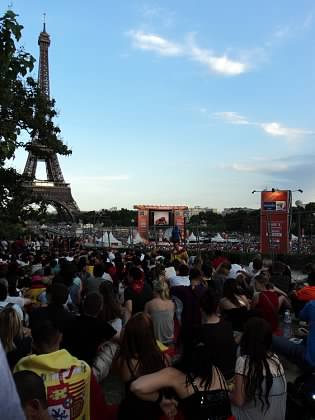Over the winter holidays my mother bought a book called The Hare with the Amber Eyes. The cover didn’t look particularly striking — it is good but not buy me good — so I didn’t really take note of it until she insisted that I read it, and after her good recommendation/pushiness on reading The Curious Incident of the Dog in the Night I thought why not. Why not indeed.
At first the book appears to be about some small Japanese objects that de Waal inherits from his uncle. Then it becomes about so much more. The inheritance is traced back to the roots of de Waal’s family, a group of wealthy Russian Jewish bankers that spread throughout Europe. They enjoy their hay day, then they decline a little, then they are caught in the tragedy of Nazism.
de Waal is a potter by training and clearly has a high appreciation for objects. This is not just about the objects, otherwise it would be about art history, but about his family, and why these particular objects are so important. It is about his ancestors and why people cherish objects.
Reading it reminds me of the feeling I had while in the Scottish highlands, and learning about the clearings and conditions of every day people. Many of them left for the new world because of that and that is my inheritance. I live where I do because events long (or not so long) ago took place. de Waal is keenly aware of how his ancestors have shaped his family history and how different events led them to where they are today.
More so than that the book is a fascinating story, first of nineteenth century Paris, then the first world war and the great depression, then the overwhelming sadness of lives ripped apart by the Nazi genocide and the family members who didn’t manage to make it out, the ones who just barely did, then a move to Japan and a beloved ancestor and his collection of objects, which are really a collection of memories and the heritage of a once great Jewish banking family.
de Waal is gifted with words, and could easily give up pottery if he wanted to. This is the best non-fiction I’ve read since Maya Angelou. de Waal makes things simple but yet so meaningful. He carefully chooses words and adjectives. It is objective, but also personal. How could it be any other way?
“Tokyo can be very quiet. I once sat waiting for them to come home, sitting on the low green railing opposite, and in an hour only two old ladies came past and a hopeful yellow taxi.”
It works because the taxi is hopeful. What a perfectly chosen word. He leaves you with a feeling of the simplicity of everyday life, of details, of objects but also with a greater thread of how complex the world can be. There is more than meets the eye. There are broader questions at hand.
This book is sheer magic. I read it in about two days. I was left with no choice but to keep reading.
